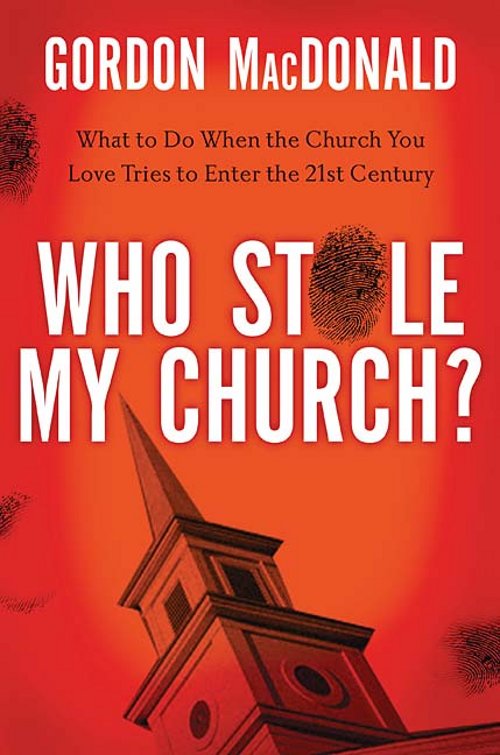I’ve just finished reading Gordon McDonald’s book “Who Stole My Church?”, published in 2008 for “builders” and “boomers” who feel that their churches have been hijacked from underneath them by leaders focused on the culture of younger generations. Gordon has created a fictional church (based on a number of actual churches), set in New England, USA, in which he serves as pastor. An intergenerational crisis looms as the church’s general meeting refuses to rubber stamp a recommendation to spend $150,000 on multimedia upgrades to the church building. Gordon calls together fifteen characters, in their fifties, sixties and seventies, to work through their response to the dumping of programs (read Adult Fellowship), the neglect of traditional music (no more pipe organ), the disappearance of symbols of reverence, and the appearance of video, irreverent humour, new preaching styles, and even new church names.

Gordon’s narrative covers the many conversations explored in the “Discovery Group”, as well as one-on-one conversations on the side. He throws in honest reflections bringing the lessons of hindsight to his contributions to those conversations. Gordon is just over the age of seventy, with 40 years experience in leading congregations, and so has plenty of material to draw on. He brings out a really helpful set of conversation topics with the potential to defuse inter-generational conflict and re-inspire an ageing generation with their potential for equipping emerging generations.
- Beginning with listening, without defensiveness.
- Whose church is this anyway? (Acts 20:28 )
- When did Jesus walk out of church? (Matthew 23:37-39)
- Jesus prepares disciples for a life of reinvention
- Relating to dramatic social changes
- Paradigm Shifts and their implications
- Fresh approaches to evangelism
- Need, opportunity, vision, initiative, program, institution, reinvention
- Church music – four chapters!
- Intergenerational conversation
- Facing the cost of change – resistance, lost membership
- Everett Rogers’ Diffusion of Innovations Bell Curve
- Connecting with real newcomers outside our comfort zones
- Generative, toxic and habitual communities
I recognised many of the characters in Gordon’s “novel”. People who would rather walk out than face change. People who challenge new ideas but get stuck in when they are adopted. People who grieve for the days of full churches and busy programs. People who come home from church growth conferences with great ideas.
I’d recommend this book for ministers/pastors and church councils/leadership teams who are working through the fine points of diplomacy as they navigate change. I’d also recommend this book for people in their fifties, sixties and seventies who are struggling to make sense of what’s happening around them. The “points to ponder” at the end of each chapter would be helpful for a reading group.
